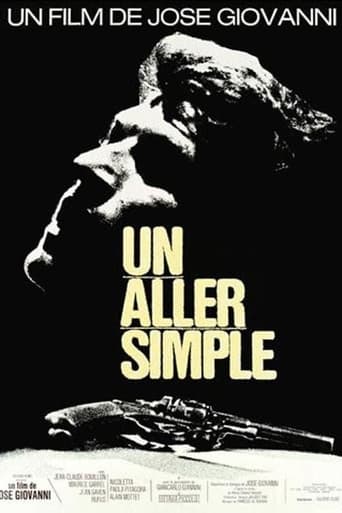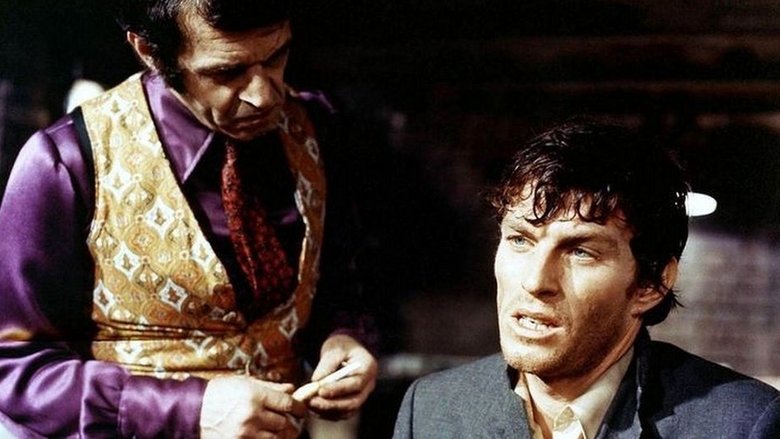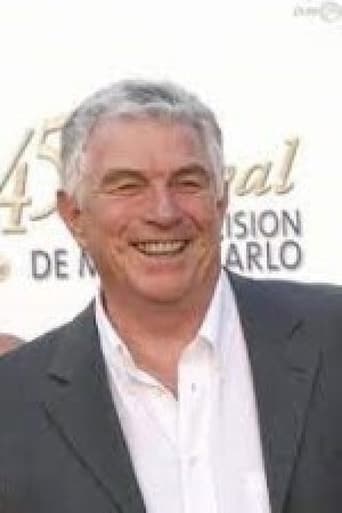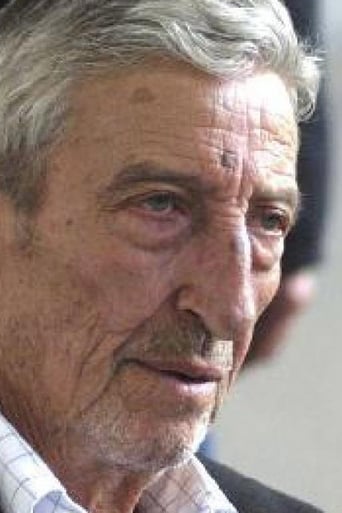

One Way Ticket (1971)
After a bank robbery gone wrong, a crook goes on the run across Belgium to escape the police, clear himself of a crime that he did not commit, and protect his girlfriend from a shady lawyer.
Watch Trailer
Cast
Reviews
Don't listen to the negative reviews
As Good As It Gets
Although it has its amusing moments, in eneral the plot does not convince.
One of the worst ways to make a cult movie is to set out to make a cult movie.
The comparison with Melville is irrelevant.Never Melville tried to put the society on trial.His characters are puppets who have no control on their life."The Samourai" may be,depending on whom you ask,an admirable flick,but it has no militant side.Tragedy must happen,it happens ,period.Giovanni,who was once sentenced to death (and fortunately granted a pardon) knew what he was talking about when he expressed his disgust of death penalty.He was more André Cayatte's psychic son than he was Melville's.For the record,I must precise that the first movie dealing with death penalty is Cayatte's "Nous Sommes Tous Des Assassins" .Death penalty ,even if it's not really the subject of the movie is the sword of Damocles hanging over the hero's head.Not that "Un Aller Simple" is a great film (it is just OK) :but it paved a reliable way for the works to come :"Deux Hommes Dans La Ville" ,the ending of which is similar to that of "Un Aller Simple" makes the 1971 movie look like a blueprint.The death penalty subject comes back in future works for better ("Mon Père" ,not devoid of complacency though) or for worse ("Une Robe Noire POur Un Tueur" and the obnoxious" Comme un boomerang"in which we learn that Justice is hard on the Rich ) Although "Un aller Simple" is GIovanni's first film where the sinister guillotine appears (even if we do not see it -this time-),it nonetheless continues the director's tradition: a solitary hero against a society where he's been an outcast for all his life.In "La Loi Du Survivant " the heroine (not common in Giovanni's rather macho world) is a pariah on Corsica island ;in "Le Rapace" Giovanni's sophomore effort and in many respects his most satisfying one,a soldier of fortune teaches a young idealist to lose all his illusions;in "Dernier Domicile Connu" ,a cop who broke the rules of the games successfully investigates ,but it leads to death and despair;However it's "le gitan" a relatively mediocre effort though- which epitomizes Giovanni's hero:gypsies are par excellence the outcasts of French (?) society."Un Aller Simple" is a holding-pattern work;it does not compare favorably with Giovanni's previous works,and its plea against a barbarian custom was dwarfed by "Deux Hommes Dans la Ville" the following year.Jean-Claude Bouillon does an OK job,but he lacks charisma to be a convincing romantic gangster on the lam.He is somewhat better than his co-star pop singer Nicoletta ,who fortunately enters the scene only in the last part.Another permanent feature in Giovanni's films:nothing can be done to save the hero: the sympathetic lawyer (like the raider in love with the mysterious woman in " La Loi du Survivant" or the judge in "Deux Hommes Dans la Ville" ) does not understand the battle he is fighting is already lost.
Muddled crime drama patterned after (but a long way from) Jean-Pierre Melville, with whom Giovanni had collaborated; not bad in itself but definitely second-rate, the behind-the-camera talent involved (including composer Francois de Roubaix, who had earlier scored Melville's LE SAMOURAI [1967]) notwithstanding.For starters, Jean-Claude Bouillon is too anonymous to carry the lead role and the supporting cast is equally uninspired - despite the (admittedly brief) presence of Giancarlo Giannini as a lawyer and Paola Pitagora as a sympathetic nurse. The film deals with a wounded small-time crook on the run from both his untrustworthy associates (who are happy to pin a robbery he didn't commit on him!) and the brutal cops (he gunned down their chief during a robbery, even if it was in self-defense!). It does, however, feature a lengthy set-piece of Bouillon besieged by police inside a factory - which recalled LE JOUR SE LEVE (1939) or, rather, that film's remake THE LONG NIGHT (1947)...since I've yet to catch up with the original myself!


